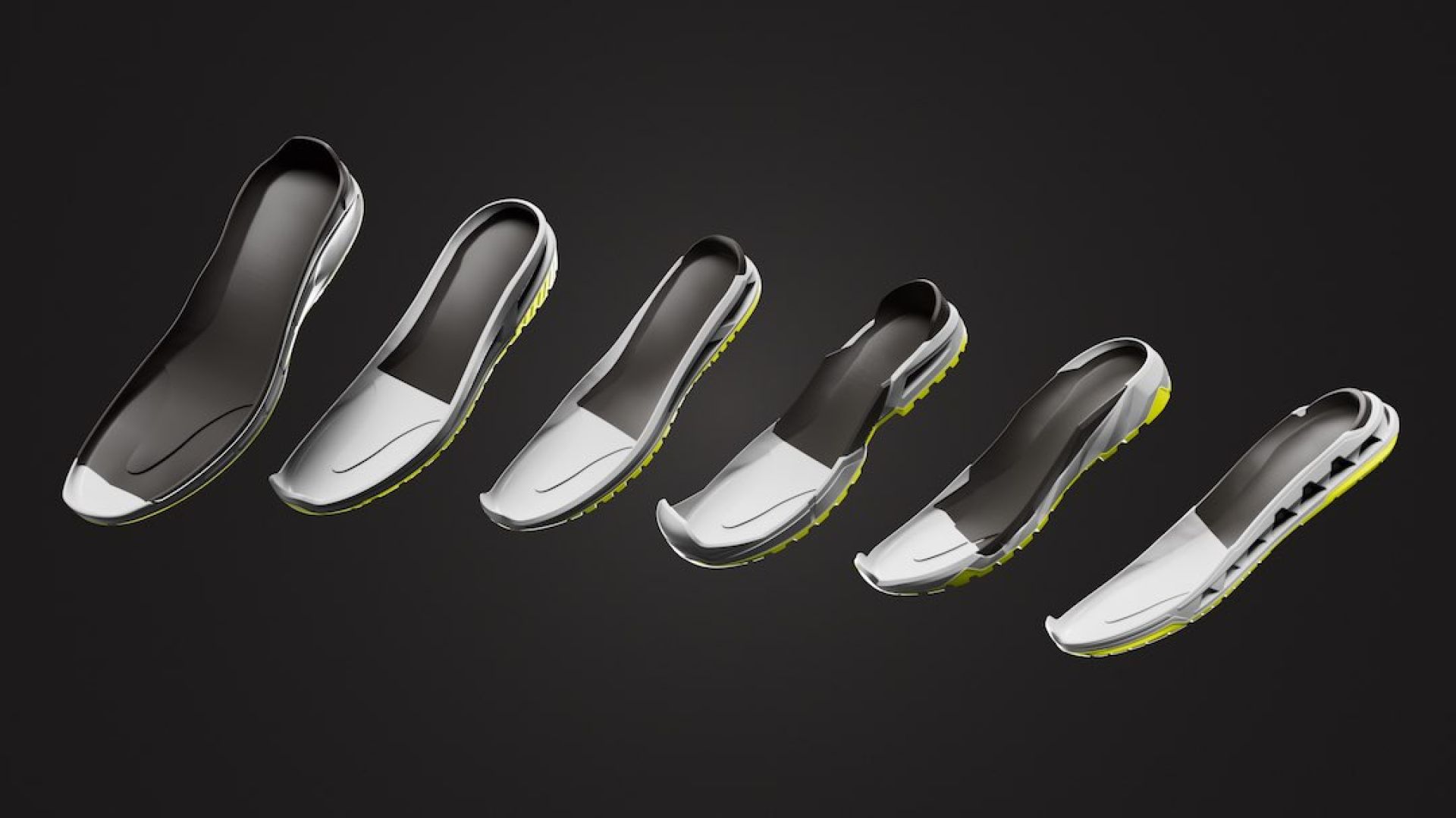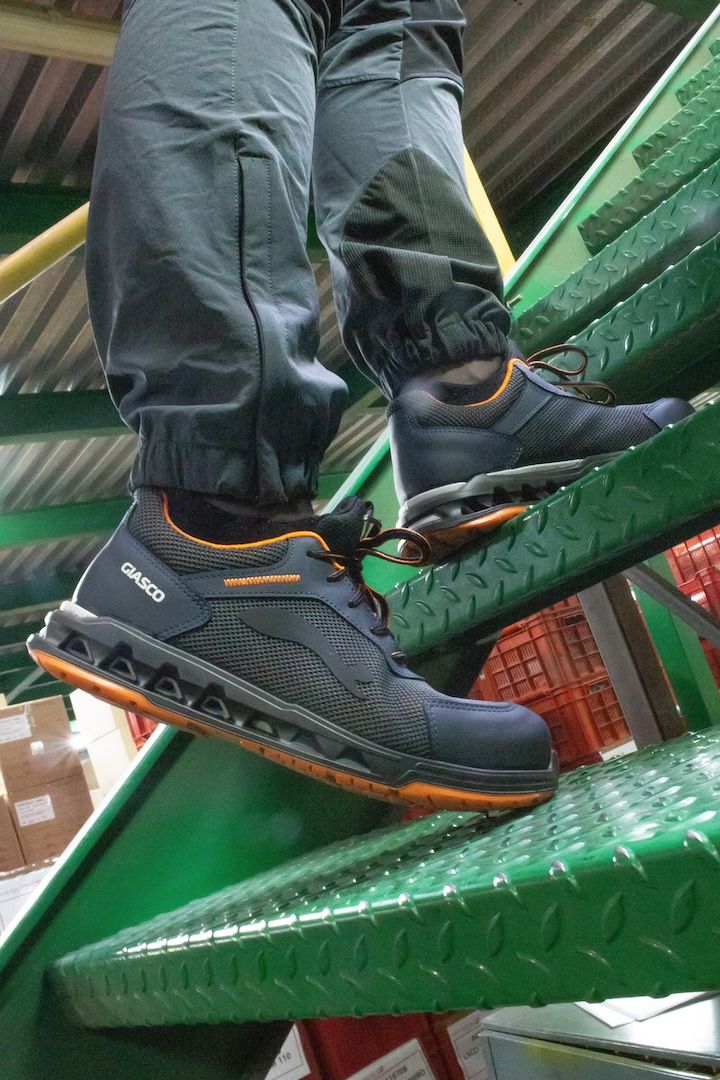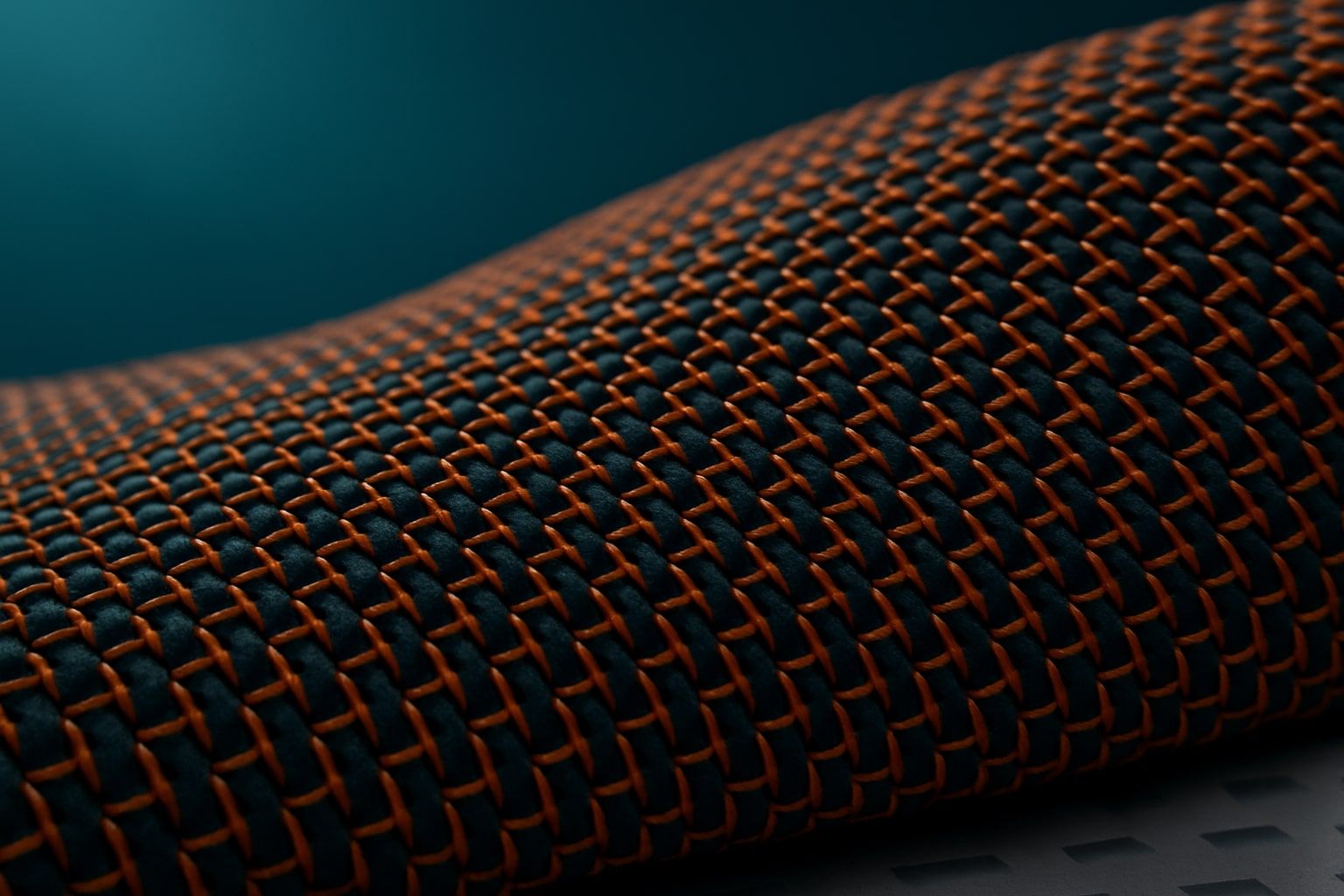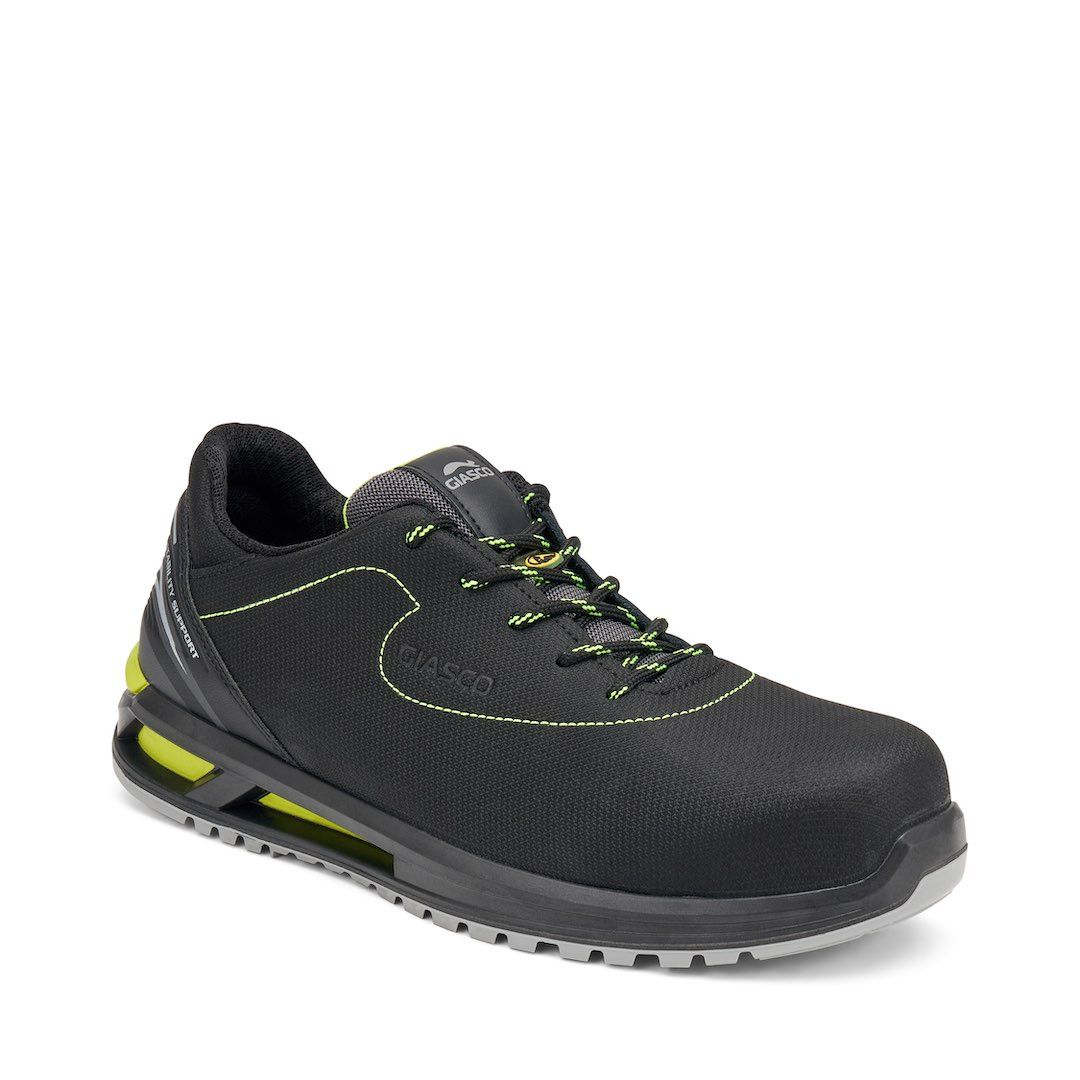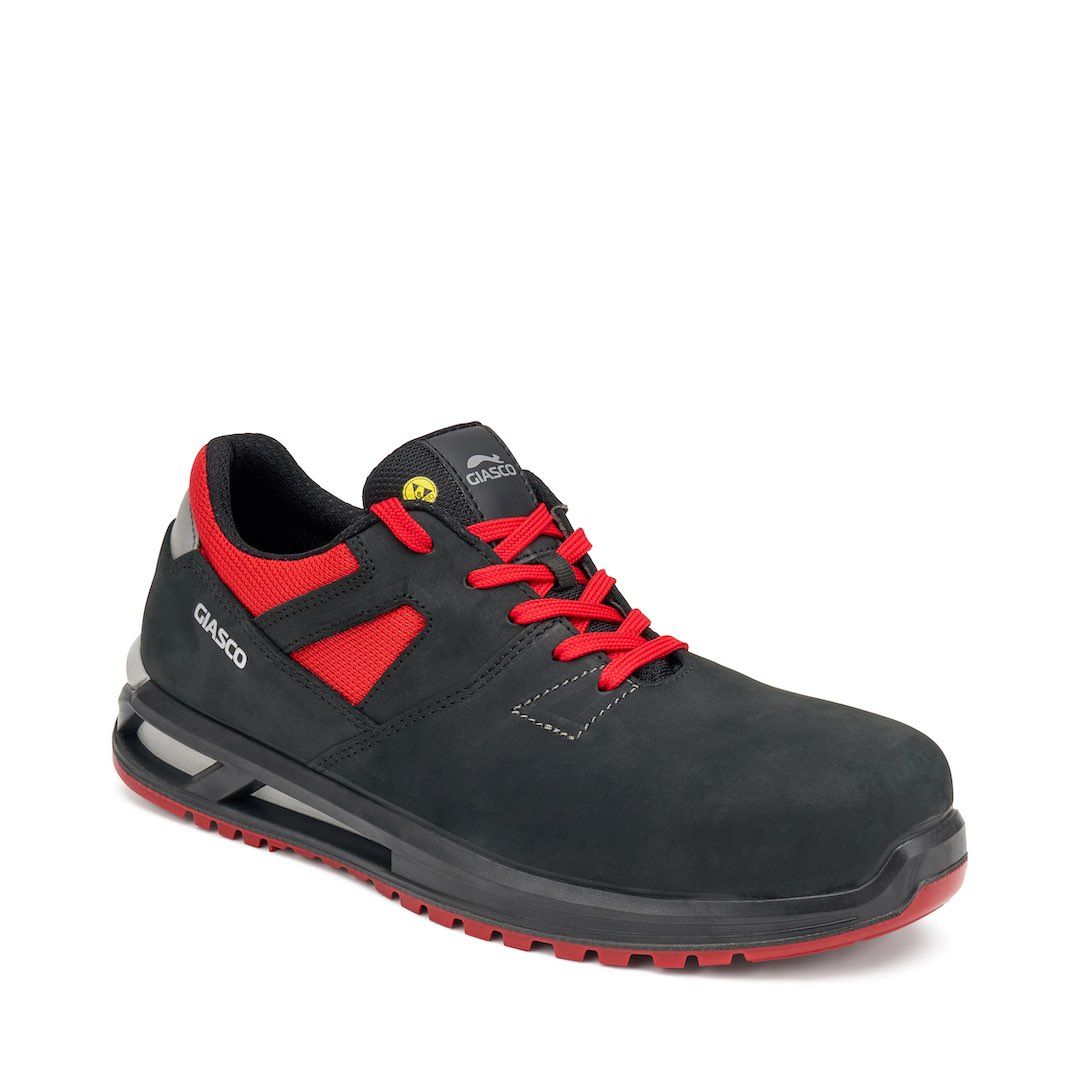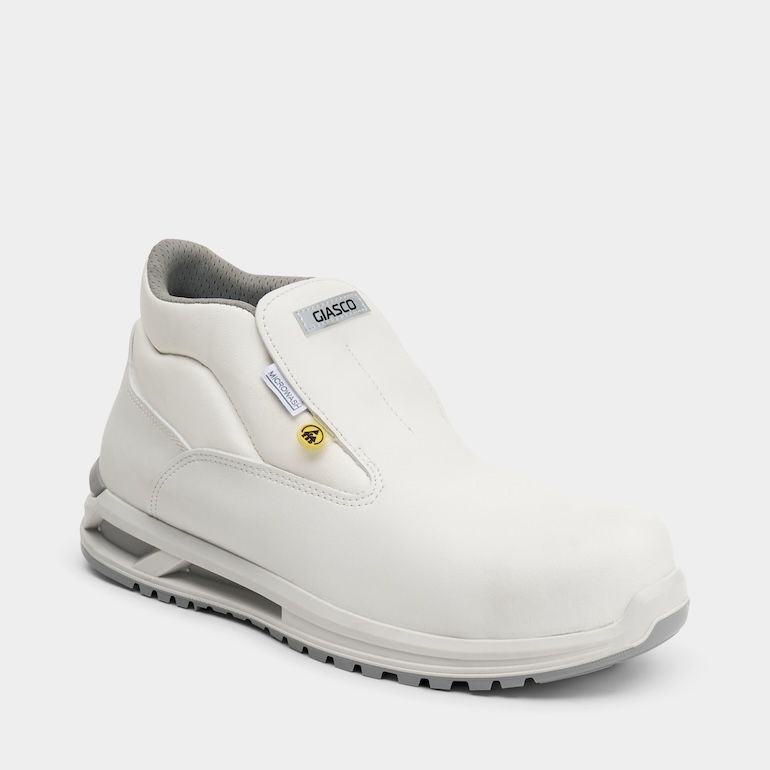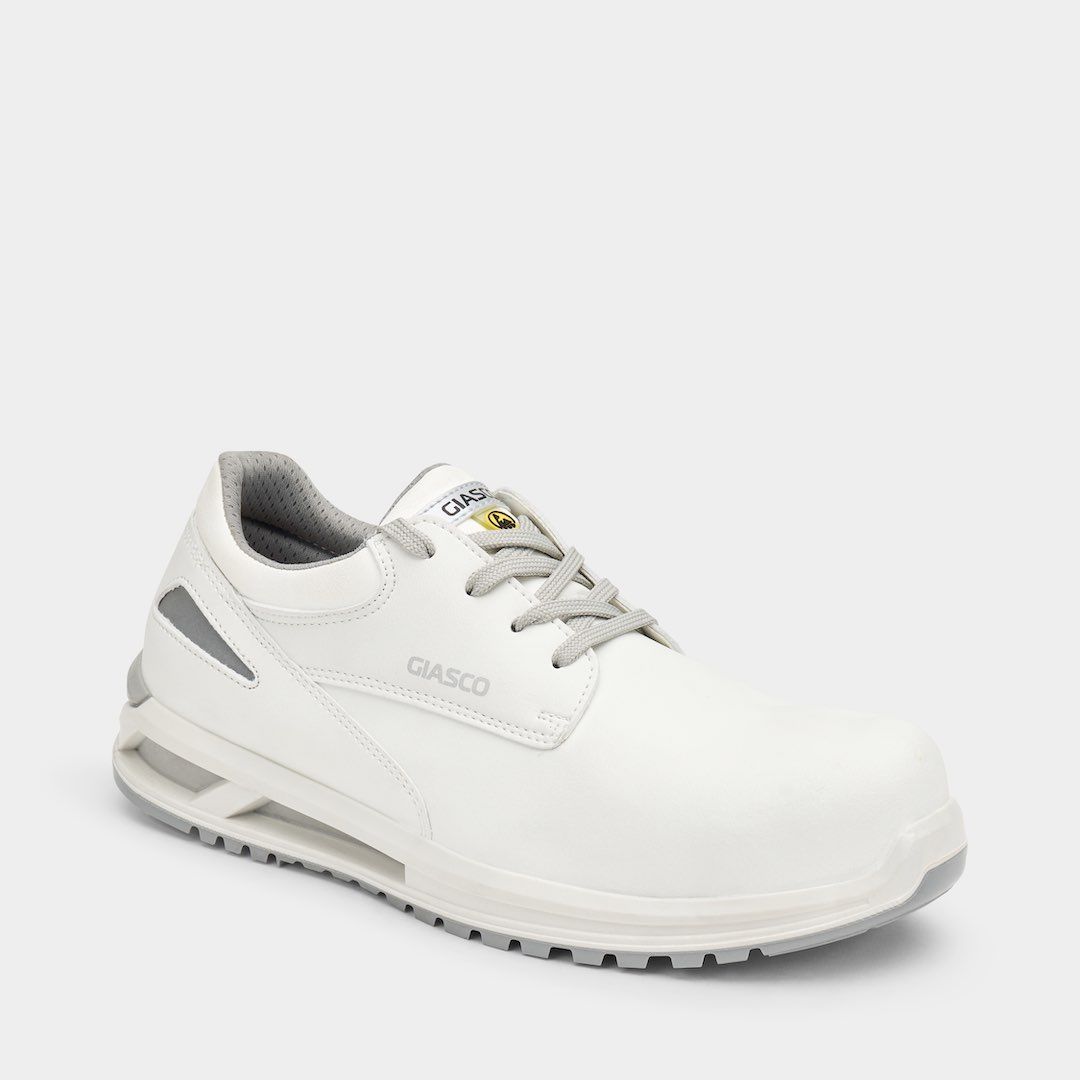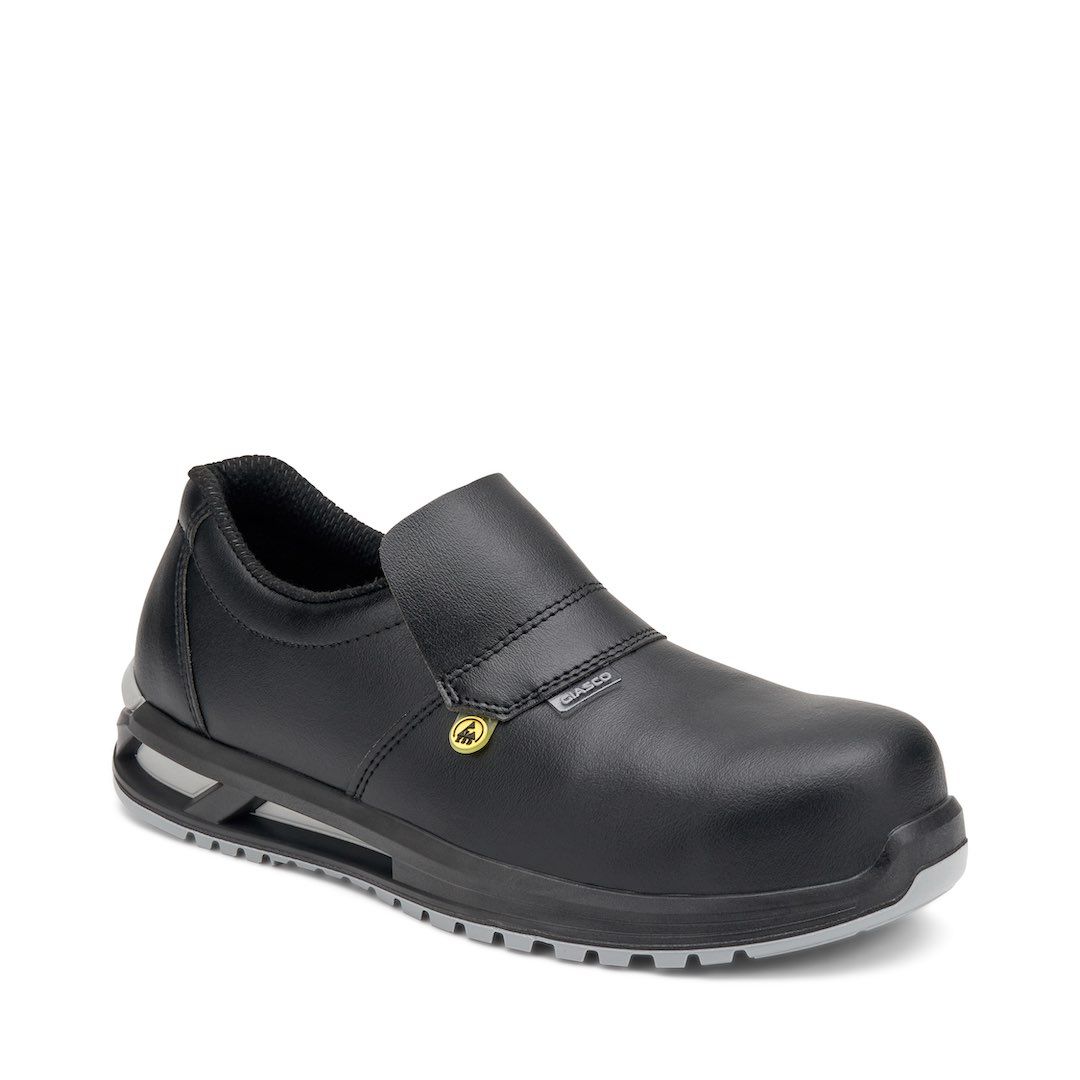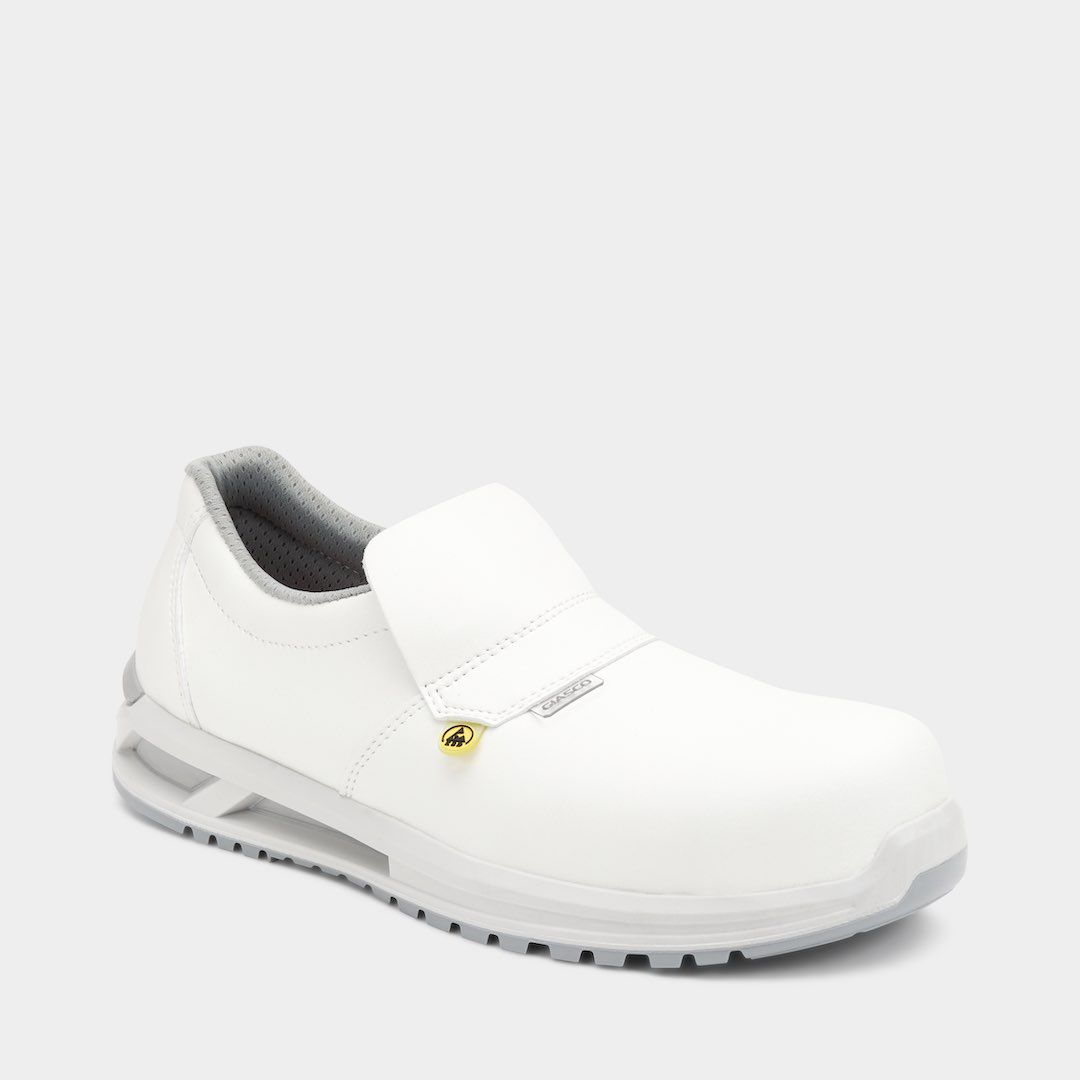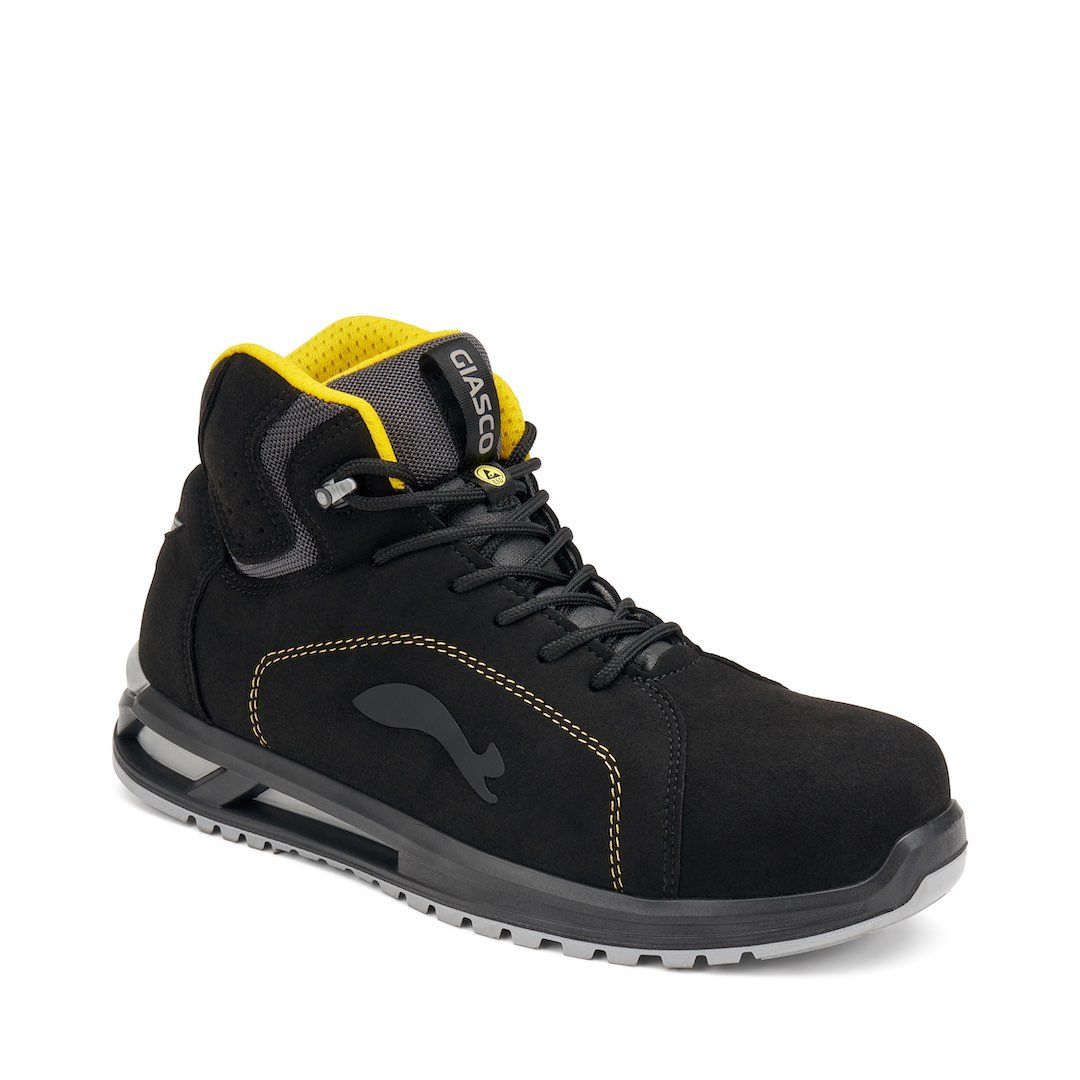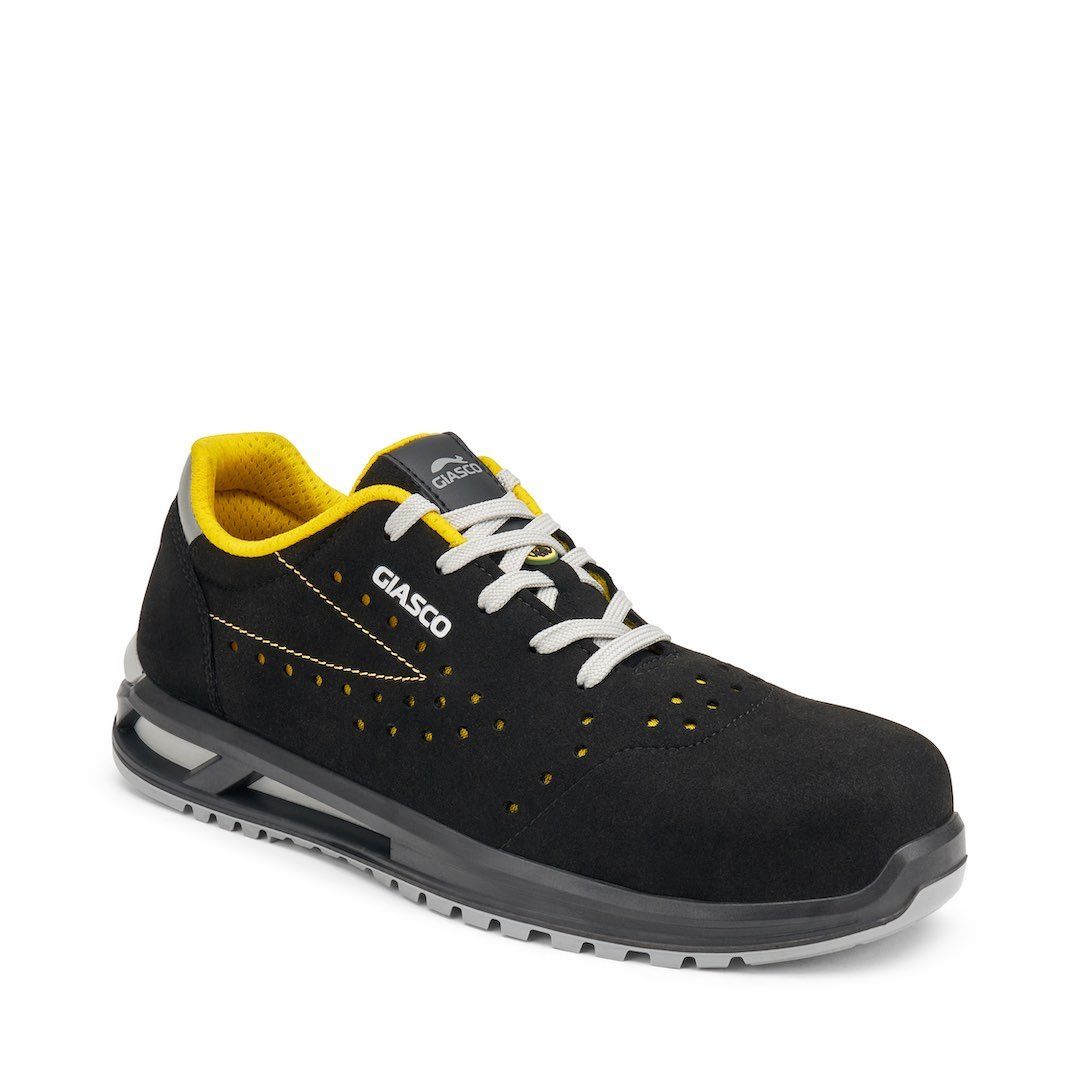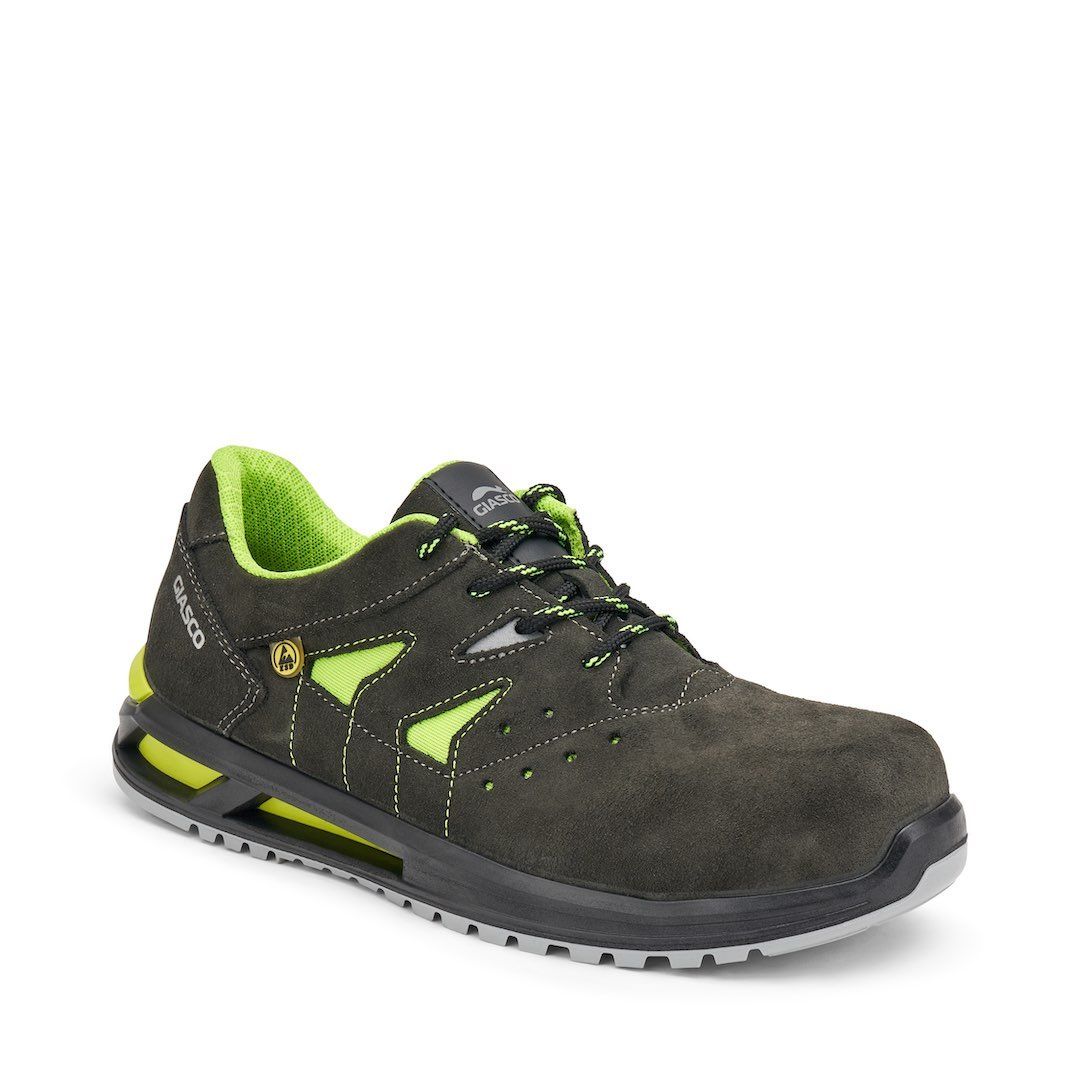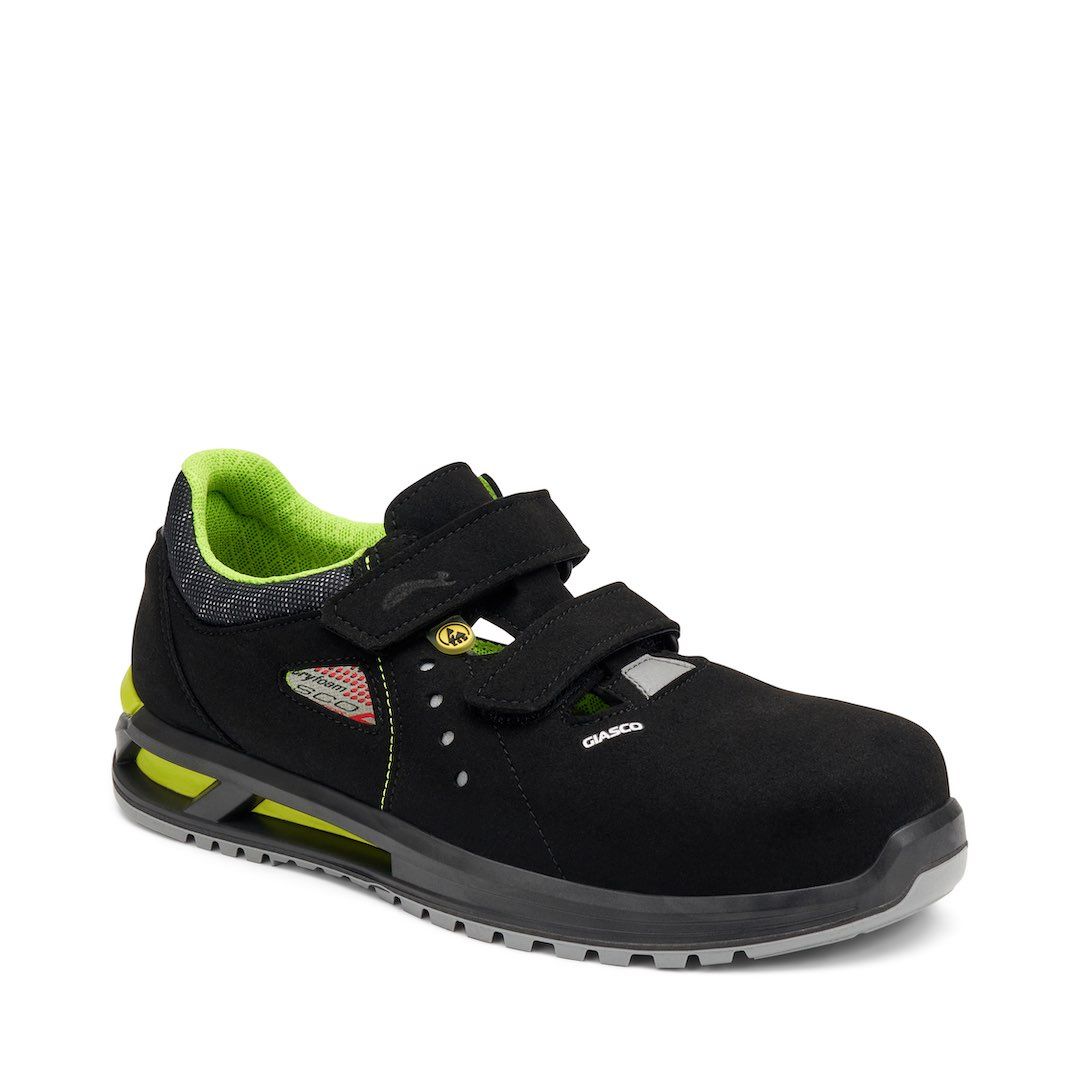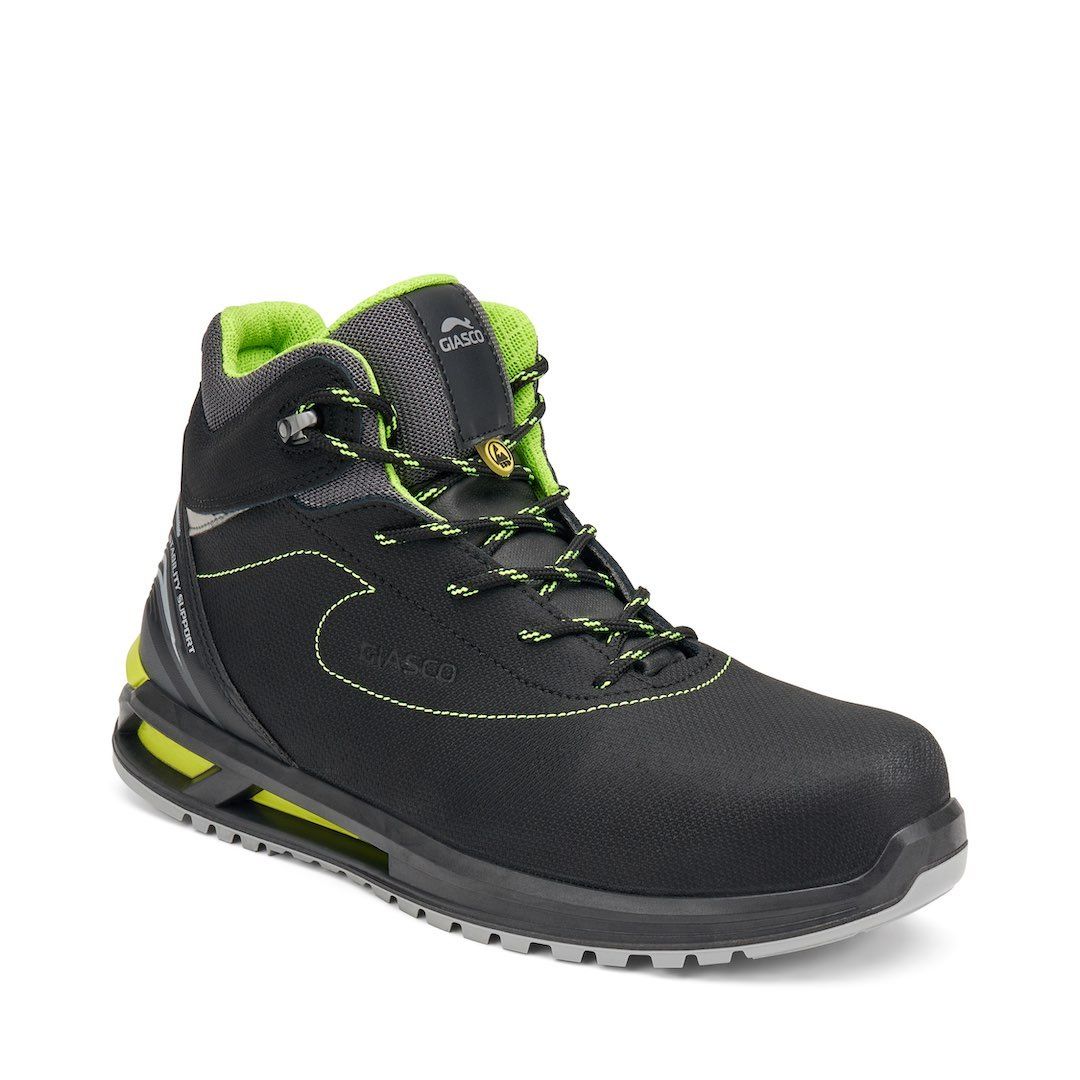Description
- Toecap: 200J polymeric composite non-thermic
- Upper: PU coated anti-scratch leather Hydro 1,8-2,0 mm
- Midsole: PL certified antiperforation composite fabric
- Insole: Memory open-cell polyurethane, anatomical, extra comfort
- Sole: PU/Outsole, PU/Midsole, PU/Upper sole
- Other: Esd, Stability Support, Anti-torsion sole shank
Description and further information
Highly perspiring and abrasion resistant fabric lining.
Reinforced heel area STABILITY SUPPORT in PU.
Soft, lined and padded tongue.
COMPLETELY METAL FREE SHOE
TOECAP 200J polymeric composite non-thermic according to EN 22568
PL MIDSOLE flexible antiperforation composite fabric according to EN 22568
SOLE 3HYBRID three-densities polyurethane antistatic, resistant to hydrolysis ISO 5423:92, to hydrocarbons and to abrasion, anti-shock and anti-slipping
ANTI TORSION insert in the sole to assure stability on uneven ground
MEMORY INSOLE three-materials extra comfort insole, with soft latex Memory cushion, ensuring no stress in heel zone and resistant to body pressure.
Perspiring, removable, anatomic, absorbing, antistatic and anti-bacterial and ESD.
Footwear meets the requirement in accordance with IEC 61340-4-3:2017 (IEC 61340-5-1:2016) for electrical resistance ESD.
FO sole resistance to hydrocarbons
SR slip resistance
Size 39-47 Shoe weight Sz 42 gr. 535
Size guide
| EUROPA | UK | US | MILLIMETERS | INCHES |
|---|---|---|---|---|
35 | 2,5 | 3,5 | 225 | 8,9 |
36 | 3 | 4 | 232,5 | 9,2 |
37 | 4 | 5 | 240 | 9,5 |
38 | 5 | 6 | 247,5 | 9,7 |
39 | 6 | 7 | 255 | 10 |
40 | 6,5 | 7,5 | 262,5 | 10,3 |
41 | 7 | 8 | 270 | 10,6 |
42 | 8 | 9 | 277,5 | 10,9 |
43 | 9 | 10 | 285 | 11,2 |
44 | 10 | 11 | 292,5 | 11,5 |
45 | 10,5 | 11,5 | 300 | 11,8 |
46 | 11 | 12 | 307,5 | 12,1 |
47 | 12 | 13 | 315 | 12,4 |
48 | 13 | 14 | 322,5 | 12,7 |
49 | 14 | 15 | 330 | 13 |
ANTI-SLIP RESULTS
Forward Heel
(heel slip 7°)
Backward heel
(heel slip 7°)
Forward Heel
(heel slip 7°)
Backward heel
(heel slip 7°)
Recommended areas of use






Certifications applied
Certifications

Certifications

Certifications

Certifications

Certifications

Certifications

Technical materials
Technical materials

Technical materials

Technical materials

Technical materials

Technical materials

Technical materials

High-resistance TEXTILE anti-perforation midsole. Protects the foot from penetration by dangerous and sharp objects. At the same time, it ensures maximum flexibility and lightness for the foot.
COMPOSITE toe cap resistant to impacts up to 200 Joules, lightweight and metal-free, ideal for safely protecting the toes without adding weight to the footwear.
Unlike other materials, composite offers several advantages: thermal insulation (does not transmit heat), non-magnetic (not detected by metal detectors), and memory (in case of compression, it returns to its original shape, leaving toes free).
Technical materials

Technical materials

Technical materials

Zero Abrasion technology uses leather finished with multiple layers of polyurethane to protect the upper from scratches, cuts, and wear. This solution ensures that the footwear maintains flawless performance and appearance even after months of intense use, providing advanced resistance against abrasive surfaces and mechanical environments—all while preserving foot comfort and breathability.
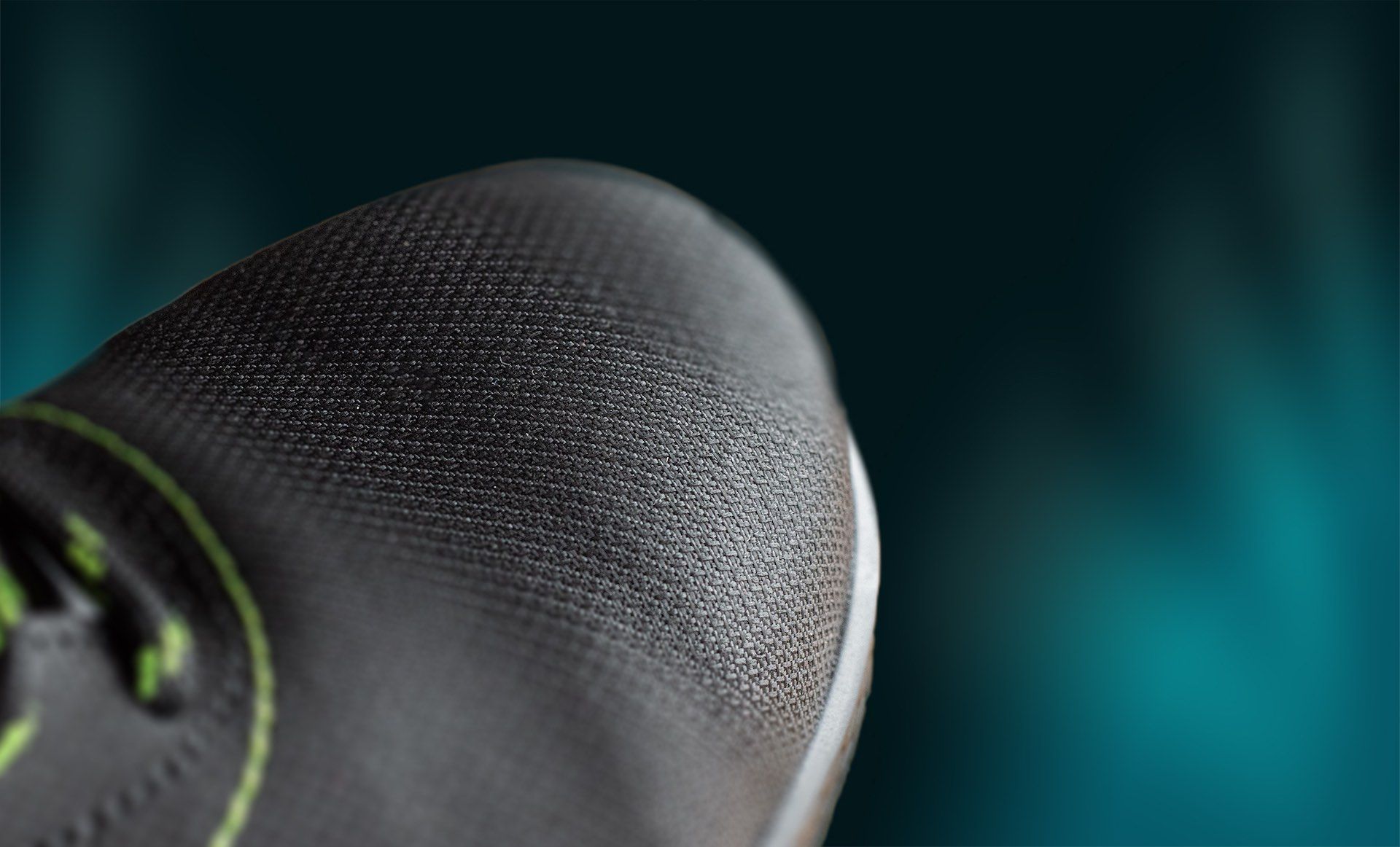
Technical materials

The Anti Torsion system uses a thermoplastic shank designed to increase stability on irregular and wet surfaces. Unlike standard shanks, it flexes with the foot’s natural motion, reducing the risk of twists and falls. Ideal for outdoor work, especially in construction, where surface control is critical.
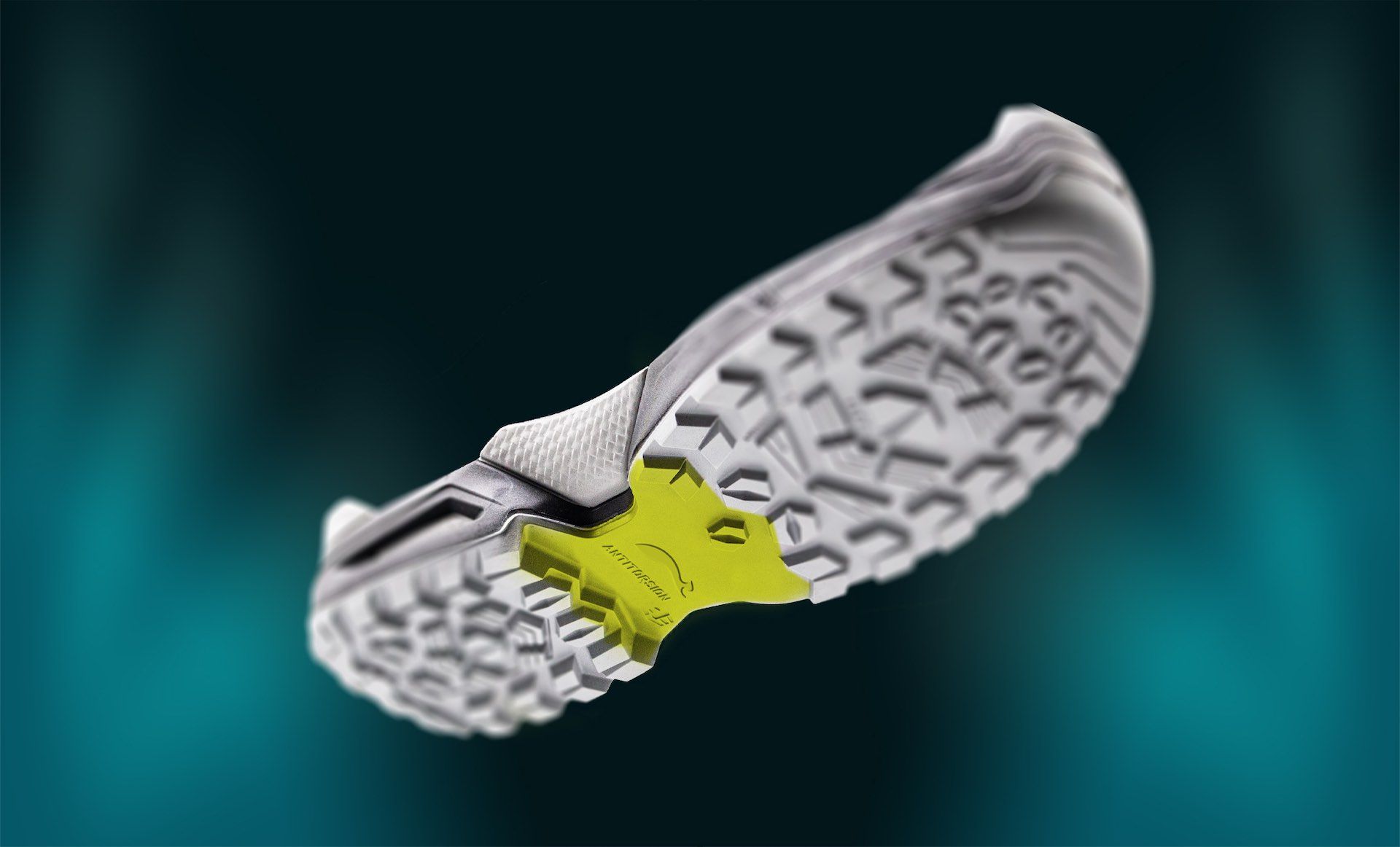
Technical materials

The Stability Support device is engineered to maximize heel support when walking. Unlike standard systems, it focuses support on specific areas, reducing foot stress and enhancing weight distribution. This leads to more natural movements, benefiting the back and joints, notably for those standing for long hours, and also reduces internal wear of the safety footwear.

Technical materials

Three to Be® - Tripla Densità Iniettata technology represents one of the most advanced results of our R&D efforts. Patented by Giasco, it integrates three entirely polyurethane-injected sole layers to optimize safety shoe performance in terms of comfort, stability, and slip resistance.
